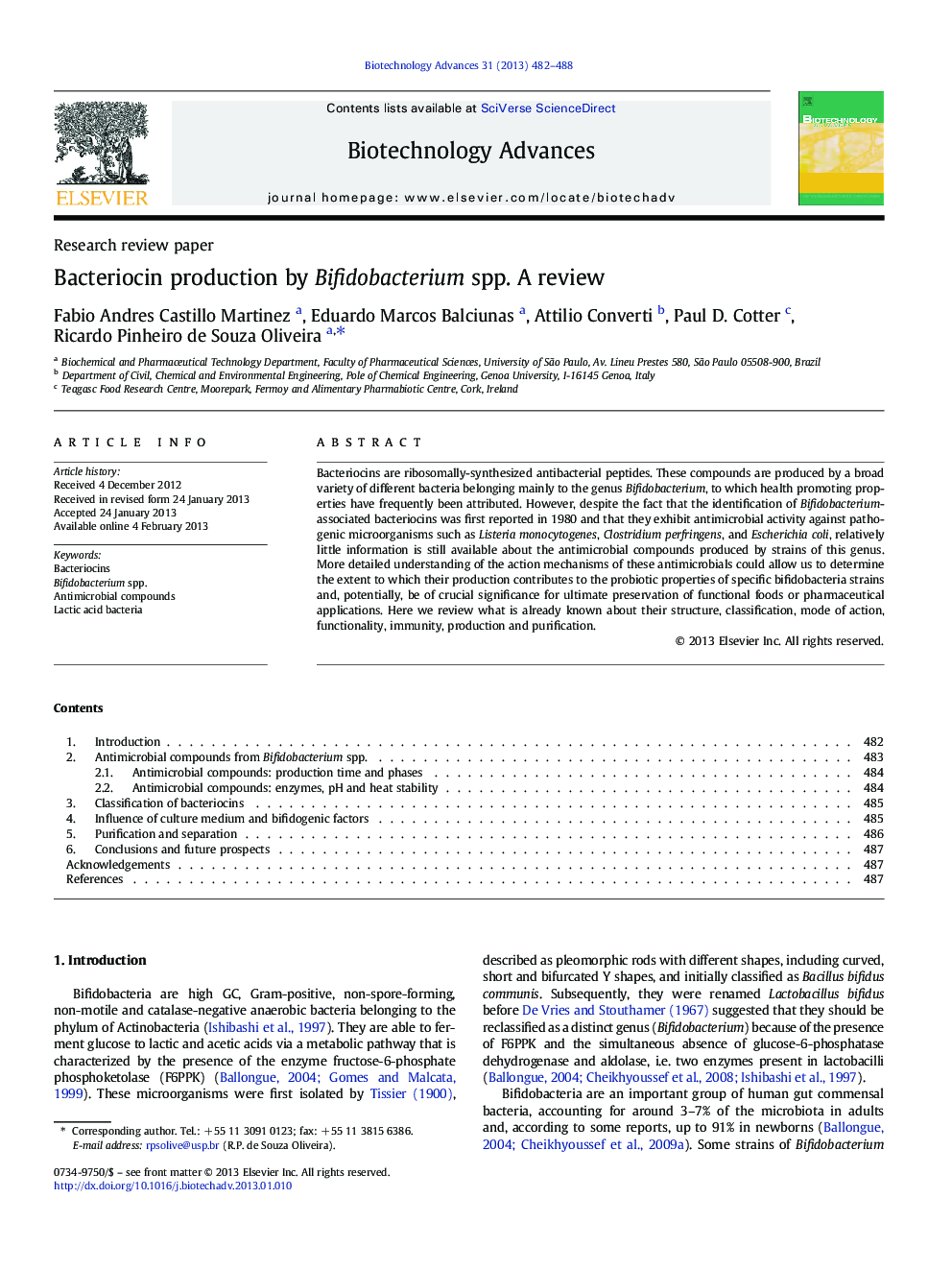| Article ID | Journal | Published Year | Pages | File Type |
|---|---|---|---|---|
| 14389 | Biotechnology Advances | 2013 | 7 Pages |
Bacteriocins are ribosomally-synthesized antibacterial peptides. These compounds are produced by a broad variety of different bacteria belonging mainly to the genus Bifidobacterium, to which health promoting properties have frequently been attributed. However, despite the fact that the identification of Bifidobacterium-associated bacteriocins was first reported in 1980 and that they exhibit antimicrobial activity against pathogenic microorganisms such as Listeria monocytogenes, Clostridium perfringens, and Escherichia coli, relatively little information is still available about the antimicrobial compounds produced by strains of this genus. More detailed understanding of the action mechanisms of these antimicrobials could allow us to determine the extent to which their production contributes to the probiotic properties of specific bifidobacteria strains and, potentially, be of crucial significance for ultimate preservation of functional foods or pharmaceutical applications. Here we review what is already known about their structure, classification, mode of action, functionality, immunity, production and purification.
